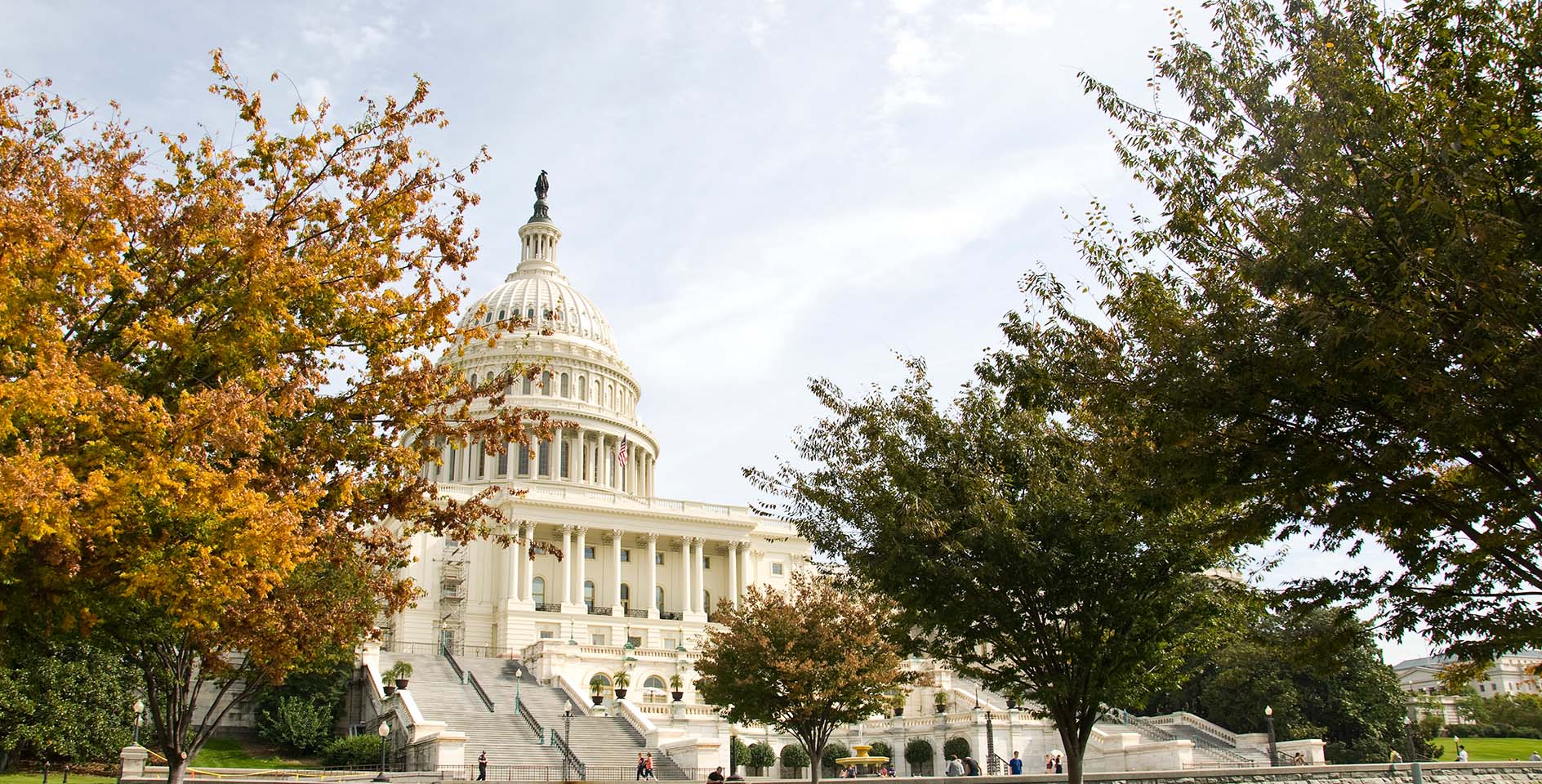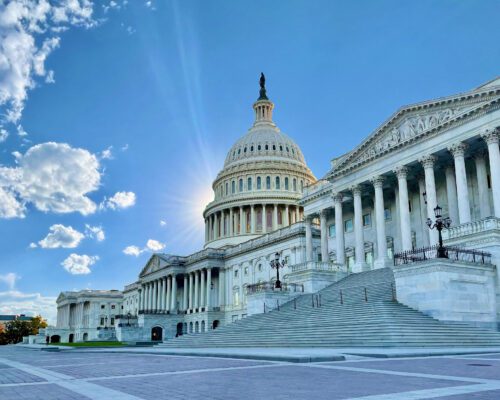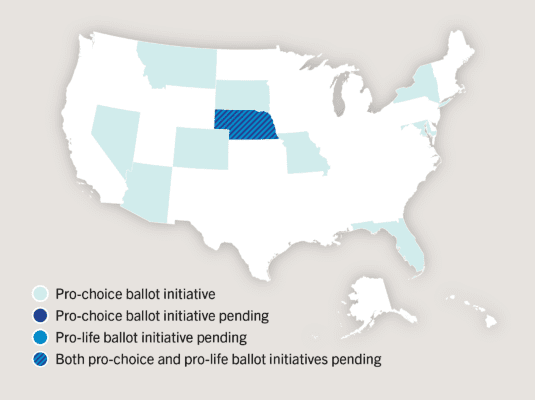Today, the Senate will once again take up the Respect for Marriage Act. Though the bill overcame the legislative filibuster with 62 members, 50 Democrats and 12 Republicans, voting in favor of moving forward with the bill before Thanksgiving, today’s vote will consider three potential amendments to the bill and then final passage. Once the bill is passed, it will return to the House for a vote on the amended legislation then proceed to President Biden.
The Senate had originally planned to take up the bill in July following its passage in the House of Representatives, but when concerns about the bill’s effects on religious liberty were raised, it was delayed until after the August recess and again until after last week’s midterm elections. In an effort to gain additional Republican support and overcome that 60-vote threshold, a bipartisan group of Senators amended the bill fixing the error that would have allowed for future recognition of polygamous relationships and attempting to assuage some religious liberty concerns. Though it could be argued that this amendment marginally improved the bill, the vast majority of religious liberty concerns remain insufficiently addressed.
In light of that, three additional amendments have been proposed and will be voted on today. Though the ERLC will continue to oppose the Respect for Marriage Act because we fundamentally believe that God’s design for marriage is for our flourishing, these three amendments offer helpful solutions to many of our concerns in the bill, and we are advocating for their adoption. While we hope that this bill will ultimately fail, we want to see its harms mitigated if it does.
What is the Respect for Marriage Act?
The Respect for Marriage Act was introduced earlier this year with the purpose of repealing the Defense of Marriage Act and codifying protections for same-sex marriage into law. That law gave a federal definition to “marriage” as being between one man and one woman, and “spouse”defined as “only a person of the opposite sex who is a husband or wife.” After the overturning of Roe v. Wade, Justice Clarence Thomas suggested in his concurring opinion that the “Supreme Court should reconsider opinions protecting same-sex relationships, marriage equality and access to contraceptives.”
Though that view was explicitly rejected in the Dobbs majority opinion, in response, the Respect for Marriage Act was introduced and passed in the House of Representatives in July of this year. The bill passed, with all Democrats and 47 Republicans voting in support of the measure.
According to the bill summary, “the bill repeals and replaces provisions that define, for purposes of federal law, marriage as between a man and a woman and spouse as a person of the opposite sex with provisions that recognize any marriage that is valid under state law.” The bill goes even further as to “repeal and replace provisions that do not require states to recognize same-sex marriages from other states with provisions that prohibit the denial of full faith and credit or any right or claim relating to out-of-state marriages on the basis of sex, race, ethnicity, or national origin.” In the event that a state should choose to neglect these new provisions, the bill authorizes “the Department of Justice to bring a civil action and establishes a private right of action for violations.”
How does this impact religious liberty?
In a letter sent to the U.S. Senate on July 26, ERLC President Brent Leatherwood conveyed why the Respect for Marriage Act presents such grave religious liberty concerns for people of faith. He said, “Given the significant role marriage plays in faith, the ‘Respect for Marriage Act’ raises serious religious liberty concerns for individuals and organizations who maintain this view of marriage (the view that marriage is an institution created by God between one man and one woman for life) and are in contract with, funded by, or working jointly with the government.”
Since Obergefell, rights of conscience and religious freedom have found themselves in the crosshairs of a number of notable cases including Masterpiece Cakeshop v. Colorado Civil Rights Commission (2018) and Fulton v. City of Philadelphia (2021), each of which was ruled in favor of religious liberty. Should the Respect for Marriage Act find passage, however, we may rightly assume that rights of conscience and religious freedom will find themselves under threat yet again.
What amendment was made?
In response to these concerns, Sens. Baldwin (D-WI), Collins (R-ME), Tillis (R-NC), Portmand (R-OH), and Synema (D-AZ) released a bipartisan amendment that fixed a previous issue around polygamous relationships and attempted to address concerns raised about the religious liberty of those who hold to a traditional view of marriage.
Supporters claim the amendment, “Protects all religious liberty and conscience protections available under the Constitution or Federal law, including but not limited to the Religious Freedom Restoration Act, and prevents this bill from being used to diminish or repeal any such protection.” It also protects churches or “non-profit religious organizations” from being forced to provide goods and services for the “solemnization or celebration of marriage.”
The amendment additionally tries to guarantee “that this bill may not be used to deny or alter any benefit, right, or status of an otherwise eligible person or entity – including tax-exempt status, tax treatment, grants, contracts, agreements, guarantees, educational funding, loans, scholarships, licenses, certifications, accreditations, claims, or defenses – provided that the benefit, right, or status does not arise from a marriage.”
Why is the amendment insufficient?
Though the ERLC is grateful for these marginal improvements to the original version of the bill, the bipartisan amendment does not provide adequate protections for religious liberty. This bill, even as amended, does not provide meaningful protection for those that maintain a traditional view of marriage. This amendment invites further confusion and litigation without offering sufficient security for the many faith-based organizations serving their communities outside of “solemnizing or celebrating marriages.” Through reiterating the protections that already exist in the law and using unhelpfully vague language, the amendment appears to offer people and institutions of faith more additional protection than it actually does.
What other amendments have been proposed?
In response to the adopted amendment’s shortcomings, three additional amendments have been proposed from Senators Lee (R-UT), Lankford (R-OK), and Rubio (R-FL) to try and address these problems. Senator Lee’s amendment would “prohibit the federal government from retaliating against any person or group for adhering to sincerely held religious beliefs and moral convictions about marriage.” Because this amendment was ruled as not germane, it will require 60 votes to be adopted, making its inclusion unlikely.
Senator Lankford and Senator Rubio’s amendments are more narrowly tailored to the bill and, thus, only require 50 votes for inclusion. Senator Lankford’s proposed amendment would significantly narrow the scope of the bill and would address the gaps in religious liberty protections included in the previously adopted Baldwin amendment. Senator Rubio’s amendment is even more narrowly focused, striking the private right of action that is included in the bill.
The Lee, Lankford, and Rubio amendments all significantly improve this flawed bill. Though ERLC will continue to work against the bill’s ultimate passage, it is our desire that these helpful changes will be adopted.
At a fundamental level, this issue transcends electoral politics. For the ERLC, this is about human flourishing, love for our neighbors, and faithfulness to God’s Word. Underlying the SBC’s commitment to biblical marriage is a verse from the first book in Scripture: “God created man in His own image; in the image of God He created him; male and female He created them” (Gen. 1:27). Aside from the multitude of religious liberty challenges this bill poses, we ultimately oppose it because we hold fast to this understanding of God’s design of marriage as being between one man and one woman for life, and we know that this biblical framework undergirds a healthy society and promotes human flourishing.










